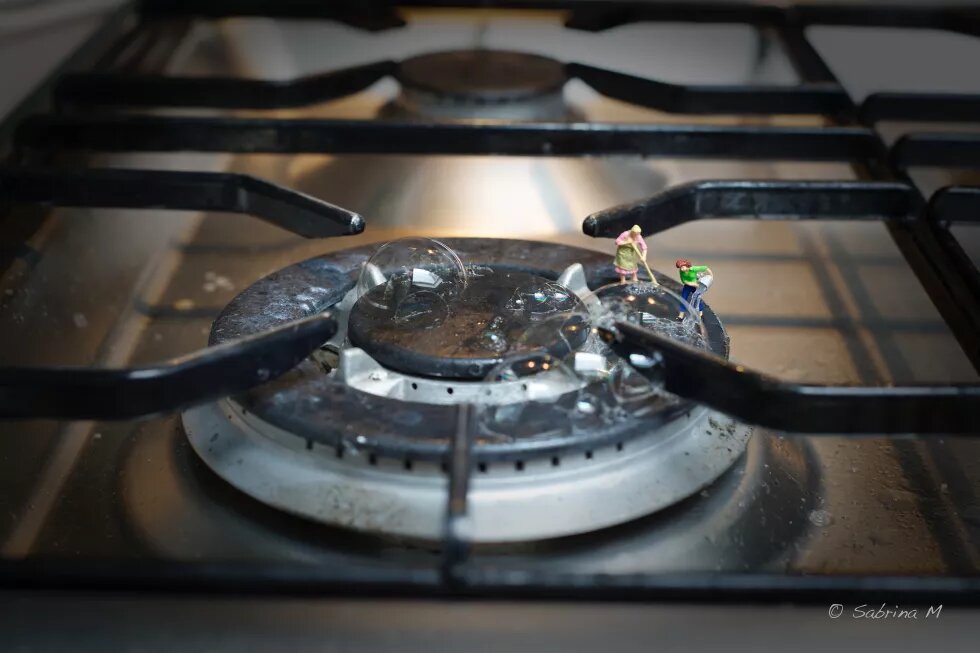
Caroline Ausserer: Domestic work is unpaid and not recognized as work, and in your text you say this should be changed in order to achieve gender justice. Could you please tell us more specifically what you are working on? [Read: Depletion: The costs of unpaid domestic work]
Catherine Hoskyns: What I am working on now is the definition and measurement of what is called social reproduction, that is all the work done to keep a family going, to rear children, to look after the elderly, and to support the community. All that work, which is normally unpaid and is usually done by women. This is ignored in measures of economic growth and in measures of a country's GDP on the grounds that it is not productive and therefore not part of economic activity. Feminists for a long time have been trying to establish the importance of social reproduction, and in fact more general economic activity can't take place without this kind of support work. It hasn't yet been successful though there have been some good attempts to measure what work is being done in the home. The EU had a good study in ten member states in 2003 (published in 2007) which looked at the extent of this work and who did it. But not much use has been made of this though you could give the work a monetary value once it is measured. I've been working on some ways of measuring and evaluating unpaid work, together with my colleague Shirin M. Rai. We got to look at some different aspects of this subject and this is what the article is about.
What did you find out?
C.H.: Unpaid work is doing harm to individuals if it becomes too intense. We establish a formula for it - if the outputs are greater than the inputs, there will be considerable harm for people doing it. It can affect your health or your emotional stability. We are setting up a way of measuring that, particularly in times of crisis. With austerity it is more severe, because the unpaid work of women fills in the gaps. That is so in my country, the UK. There have been many cuts to benefits and social services, which means that women get less support for what they are doing.
It wasn't successful to measure this unpaid work, but you have found a formula, how does it work to measure it?
C.H.: The measuring of social reproduction is one aspect. The fact that it is not measured or recognized means that it is very difficult to track trends, for example, women going into or leaving the labour market or getting out of it or taking part time jobs and so on. There have been many suggestions as to how it could be measured, for example Time Use Surveys or Household Satellite Accounts. But it would be very expensive for countries to do this regularly and it would have to be co-ordinated through the United Nations, as is done with other economic statistics.
What are Household Satellite Accounts?
C.H.: They measure and value unpaid work. This can be done in two ways: either through measuring replacement , asking what would it cost if you employed people to do the caring and cleaning and other tasks. The second is through measuring the opportunity cost: that is if the person doing the caring were to be employed outside the home , what would they earn? What is the economy losing? The US has experimented with HSAs.
What is the next step of your research? You stated that a harm results if the outputs are greater than the inputs, but you also came up with some strategies against this kind of depletion through social reproduction. Could you please explain them?
C.H.: Certain of these strategies, we call them mitigation strategies, do reduce the harm, if you can organize or afford them. Mitigation can mean to share the work with all the members of a household or to pay someone else to do part of the work. Although it has to be recognized that this may just be passing the depletion on further down the chain. The second strategy is replenishment. This comes about if the state gives benefits, home care or maternity benefits for example or provides good cheap crèches and health clinics. The replenishment strategies may be the ones that get cut if there is a crisis or a recession.
There are also the transformation strategies, the third one in your model.
C.H.: Transformation would mean a complete change in the way economic activity is measured. Then the unpaid work would have to be included as part of economic activity. That would mean to change the whole calculation of GDP. I think policy makers are not willing to do that, because it would be a big upset of conventional measurements. When they do measure the unpaid work being done it is usually equivalent to 30-40 % of economic activity or even more. It would be an enormous change. But: if you don't do that, you are ignoring the fact that this is a subsidy that is being made to business. Businesses rely on the labour force being renewed and maintained without really having to pay very much for it. They pay the wage to the workers, but that does not cover all this kind of activity. Thus there are two things to bear in mind: first the subsidy that unpaid work pays to business and to economic activity in general, and second the depletion, the possible harmful effect to people doing it, if there is not enough support.
These harmful effects also include the non-recognition of this kind of work as being real work.
C.H.: I think the non-recognition is very important. If this work is recognized that makes a lot of difference. I have been involved in a project in Nicaragua, which illustrates this. There some of the Fair Trade contracts have included a component for ‘support labour costs’ that is the unpaid work of the women supporting the cash crop production. That money is going to the women and has a huge effect and I think this is so because of the recognition of their work, not just the payment. The fact that their work is recognized as contributing to production.
Can you explain a bit more how this project works?
C.H.: It is done through some cooperatives in Nicaragua, producing sesame oil and coffee. The first contract was with the Body Shop. In the costs we suggested that they should include a component for the unpaid work of the women. The Body Shop was a bit hesitant at the beginning but agreed in the end to do it. Now they are very keen. So the women would be at home, cooking for the workers and doing laundry, also raising animals, producing cheese and raising the children. It was the recognition that that work was actually part of the costs of production that was such an innovation. With this extra money the coop set up a fund that the women can draw on to develop other activities, like baking or carpentry. The women run it collectively and they have also developed a savings and loan scheme that they can borrow from if they need.
This gives the women more independence.
C.H.: It gives the women independence through having money they can draw on without going through their husband. It would be interesting to see how the men have reacted to it. Some research is being done on this. I wonder if it is regarded as a good addition to the family income or if it is regarded as a threat. But I think it is the former.
The maintenance and extension of social protection of the state is important. Especially in times of crisis women can suffer more of the cuts.
C.H.: It is something that becomes more intense. Women pick up the slack if the state provision of services is reduced and there is more unemployment. There are some good pieces of research that illustrate that in previous crisis, in Asia or Argentina.
What is the conclusion of your work? The recognition, measurement and compensation of depletion of social reproduction are critical issues for gender equality. In view of the European elections, which way should the European policies take?
C.H.: I think the European Union has a tremendous influence on gender issues. When I was working in the 1980s, there were court cases coming through the European Court, which were really important. I remember that you could only bring cases about paid employment, you couldn't bring anything to do with the unpaid work sector. That was regarded as the business of individual states... In statistics, the EU could be important. They could redo the Time Use Survey they did about 10 years ago. And they could make some valuations of the results. That would be a huge contribution. All these things are difficult in times of austerity. But recognizing unpaid work as work, that would be a good start. To recognize that it is an integral part of production, that it is not just something you can rely on being done because women are used to doing that. It is part of production and gives an input to production. That would be really important and the EU could take the lead in that.
What are your expectations in regard of the elections? Do you think this issue will be taken up by the EU?
C.H.: There has been a lot of emphasis on the issue of violence against women recently. That is really important. But this other issue we are talking about is an aspect of that: The non-recognition of women's work contributes to disrespect for women and that encourages violence.
Thank you for the interview!
